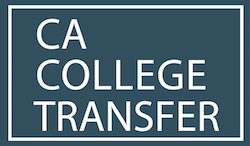Haas Supplemental 2016, plus Augmented Review
The time has come when supplementals start being sent out by the various UCs. These include:
Haas Supplemental Essay and Resume
I cannot emphasize enough how crucial the Haas Supplemental essay is to your admittance to Haas. Not only must it convey leadership and focus on at least one of the four defining principles that are the backbone of Haas culture, it also must be written extremely well. They are looking to analyze your communication skills as well as your fit within the Haas community. Your resume should also show leadership, and the blurbs should be written to show how you improved or added to the environment where you worked, interned, or volunteered.
The Haas supplemental and resume is sent out at the beginning of January (look in your UC portal) and must be submitted by January 31.
The Haas 2016 question this year is:
Describe how you envision your two years in the Haas Undergraduate Program. What impact do you hope to have on your peers?
UPDATE: For 2017 Haas question go here.
–> If needed, I offer affordable Haas guidance. Please go here for info.
UC Supplementals (also known as Augmented Review)
Some of you may receive what is called either an Augmented Review or a UC Supplemental. Currently, I believe only four UCs send them out: Berkeley, UCLA, Irvine, and Davis.
There are three types of supplementals:
- hardship/disability
- talent or accomplishment
- academic borderline
The first two are sent out because something in your application alluded to this subject and they want more information. If you don’t get one it doesn’t mean anything negative. It simply means they have all the info they need. Likewise, getting a request doesn’t mean anything negative: the UC just wants to know more.
If you wrote about a disability, I believe the disability supplemental is sent out by default to all applicants, so don’t stress over it – it’s just standard protocol. If you noted a hardship and get a supplemental, you need to first verify that the hardship you are assuming they are asking about is actually the hardship they are asking about. (You may have alluded to more than one and not be totally aware of it.) Look over your application carefully for any hidden markers. If sent a hardship supplemental, you obviously want to frame it to your best possible advantage.
If you receive the talent or accomplishment supplemental they simply want to know more about it, and your answer could possibly make you more competitive.
The academic borderline is the supplemental of which your answer will definitely have the most impact on whether or not you’re admitted. Borderlines mean just that – you’re on the fence. They aren’t sure yet which pile to put you in. How you answer can have a profound impact.
As scary as it might be to receive a supplemental, remember, they simply want straight-forward answers. I urge you to not fall victim to those asking for hundreds of dollars to go over these with you. Sure, you want to know exactly what the UC is asking, but that’s a fairly easy application eye-balling (it’s not rocket science mumbo-jumbo), and you definitely want your approximate paragraph-size answers be strong. But it’s fairly simple, so don’t fall victim to fear.
How do you know which supplemental you got?
As they don’t label the supplementals, you can usually tell by looking at the wording of the questions. Also, the academic borderline usually has a lot of questions, while the other two ask about four or five.
Augmented reviews are sent out, starting in January, and may continue through February.

